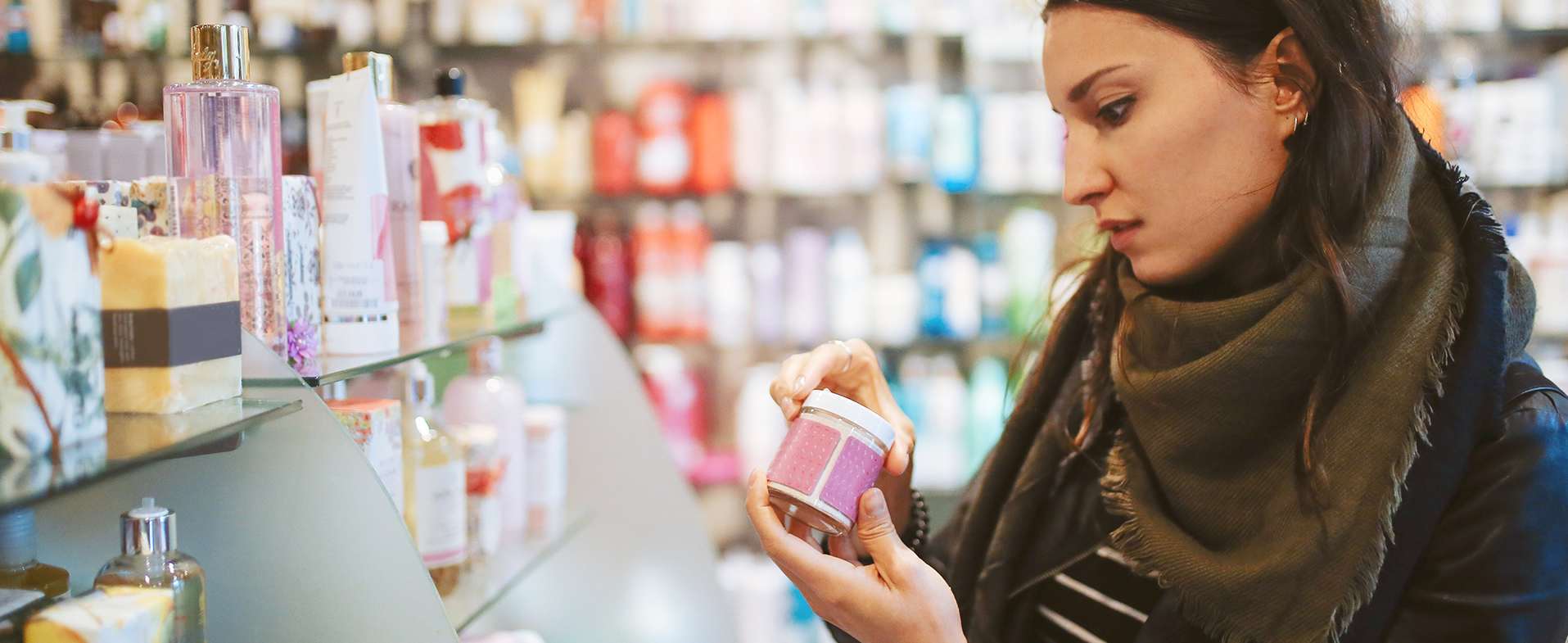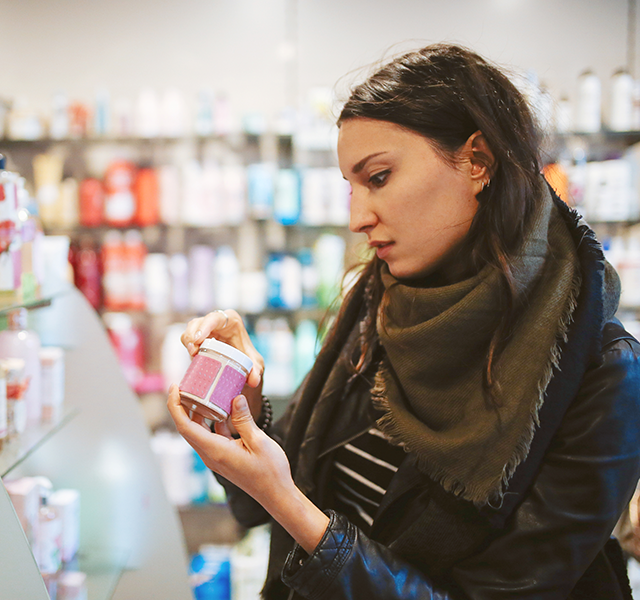In recent years, many people have been switching over to natural beauty and personal cancer products, as ingredients in traditional products contain endocrine (hormone) disruptors that could, potentially, cause health issues like breast cancer.
Parabens and phthalates are some of the chemicals that have come under fire: Parabens act as preservatives to maintain the integrity of a formula while phthalates are molecules found in fragranced products like perfumes, candles, lotions, soap, hairspray – and the list continues.
“Theoretically, these chemicals could cause changes in the body that could lead to breast cancer,” says Randa Loutfi, M.D., a breast cancer physician at Henry Ford Health. “And there is some supportive lab data and limited human data, but the overall picture is inconsistent and cannot yet prove that typical personal-care use of parabens or phthalates cause breast cancer.”
Here, Dr. Loutfi explains how these chemicals are linked to breast cancer – and why you might not need to throw away all of your non-natural products just yet.
How could parabens and phthalates potentially cause breast cancer?
Dr. Loutfi: Parabens mimic estrogen and act as hormone-disrupting chemicals, which could raise breast cancer risk.
Some phthalates show anti-androgenic effects (meaning they can work as anti-male hormones). Others affect steroid metabolism, inflammation or gene regulation — all of which could conceivably affect cancer development or progression. Some studies find small positive associations for particular phthalates or parabens with breast cancer or breast-tissue changes, while others find no association or even weak opposite associations.
Regulatory and safety review bodies (the Food and Drug Administration, Cosmetic Ingredient Review and some European Union regulators) generally state that parabens used at current concentrations in cosmetics have not been shown to cause harm, although the European Union has restricted or banned certain parabens. Agencies recommend continued monitoring and research.
How does estrogen affect your breast cancer risk?
Dr. Loutfi: Estrogen is a hormone made mainly by the ovaries before menopause and made in fatty tissue and adrenal glands after menopause. It regulates your menstrual cycle, bone health, cardiovascular function and reproductive tissue growth. In breast tissue, estrogen promotes the increase and growth of breast cells originating both in the milk ducts and milk glands.
Some breast cancers are fed by estrogen, so having more estrogen leads to an increased risk of breast cancer. And certain factors increase your exposure to estrogen throughout your life. For example: getting your period early, going through menopause late, never being pregnant, undergoing hormone replacement therapy (HRT) and having obesity (in postmenopausal women). All of these factors increase your risk for breast cancer.
How much exposure to parabens and phthalates does it take to increase your risk for breast cancer?
Dr. Loutfi: We don’t have a clearly established cancer-causing threshold in humans. So we can’t say “x amount causes an increased breast cancer risk.”
Current human exposure levels are far below those that clearly drive cancer in lab models, but scientists remain cautious because of the uncertainties regarding cosmetic mixtures or, importantly, exposure during sensitive phases of development (like puberty and pregnancy) and their long-term effects.
If you have a higher genetic risk of breast cancer, are you more susceptible to the effects of these chemicals?
Dr. Loutfi: If breast tissue is already biologically “primed” by a higher genetic risk – for example if you carry a BRCA 1 or BRCA 2 mutation – that extra push from environmental exposures could be more consequential.
This said, direct human evidence is very limited. Most studies on parabens, phthalates and breast cancer have not been organized by genetic risk. Specifically, for BRCA mutation carriers, there’s no robust data yet showing that everyday paraben/phthalate exposure further increases their risk.
Breast cancer usually develops from a combination of factors: genetics, lifetime hormone exposure, lifestyle and environment. Reducing your risk isn’t about avoiding one single thing — it’s about stacking small, positive choices across many areas of your life.

Can avoiding phthalates and parabens reduce your risk of breast cancer?
Dr. Loutfi: No study has yet demonstrated that women who intentionally avoid these chemicals have lower breast cancer rates. Whether this translates into a measurable reduction in breast cancer risk is unproven. The effect, if it exists, is probably small compared with major risk factors such as genetics, age, reproductive history, obesity, alcohol use and use of hormone therapy.
Can you elaborate on the research-backed ways to lower your risk of breast cancer?
Dr. Loutfi: The biggest gains in reducing breast cancer risk usually come from lifestyle changes, such as: maintaining a healthy weight, exercising regularly, limiting alcohol intake, eating a balanced diet, limiting hormone replacement therapy and being vigilant about screening.
If you’re at high risk, using medical prevention strategies are important: medications like chemoprevention can reduce the risk of estrogen receptor-positive breast cancer by about 50%. Risk-reducing surgery like mastectomy and/or surgical removal of the ovaries also significantly reduces risk.
If you have a BRCA mutation, you need a very different prevention plan than if you are at average risk. Tools like the Gail or Tyrer-Cuzick risk calculators can estimate your breast cancer risk. Also, talking with your physician about your family history and personal risk factors is key.
Reviewed by Randa Loutfi, M.D., a breast cancer physician who sees patients at Henry Ford Cancer – Detroit.



